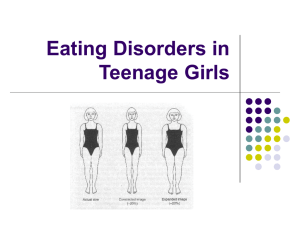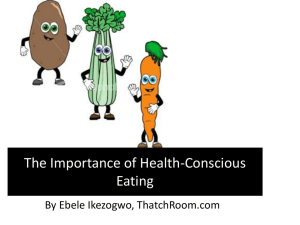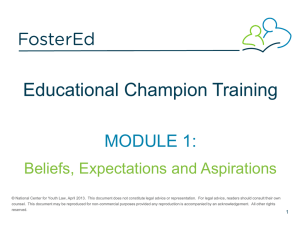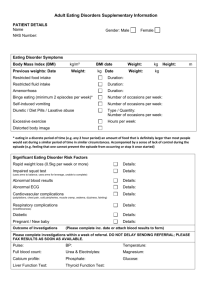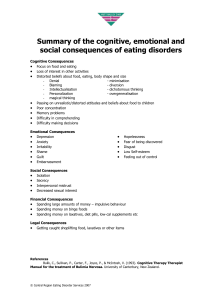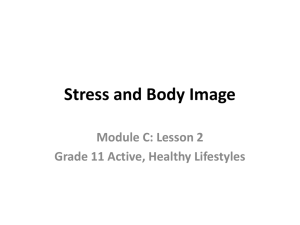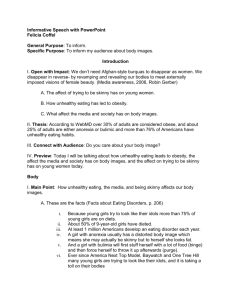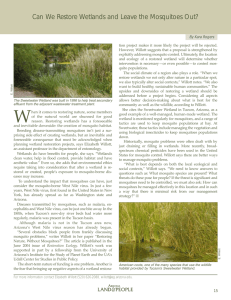Minister warns of damage to public health from poor body
advertisement
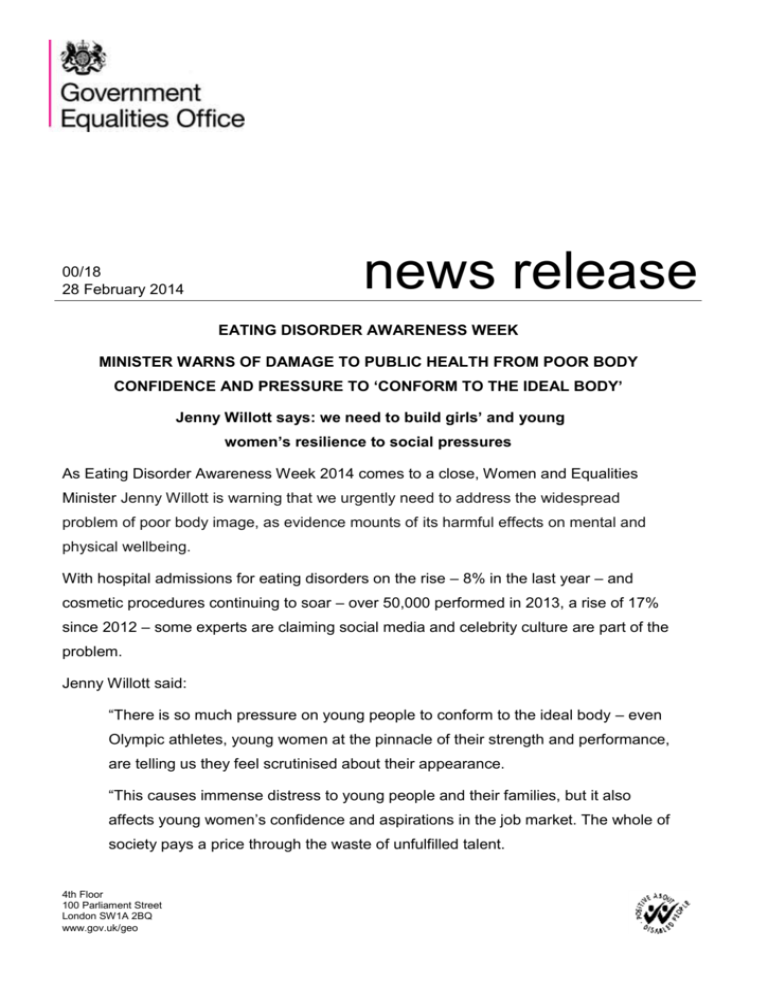
00/18 28 February 2014 news release EATING DISORDER AWARENESS WEEK MINISTER WARNS OF DAMAGE TO PUBLIC HEALTH FROM POOR BODY CONFIDENCE AND PRESSURE TO ‘CONFORM TO THE IDEAL BODY’ Jenny Willott says: we need to build girls’ and young women’s resilience to social pressures As Eating Disorder Awareness Week 2014 comes to a close, Women and Equalities Minister Jenny Willott is warning that we urgently need to address the widespread problem of poor body image, as evidence mounts of its harmful effects on mental and physical wellbeing. With hospital admissions for eating disorders on the rise – 8% in the last year – and cosmetic procedures continuing to soar – over 50,000 performed in 2013, a rise of 17% since 2012 – some experts are claiming social media and celebrity culture are part of the problem. Jenny Willott said: “There is so much pressure on young people to conform to the ideal body – even Olympic athletes, young women at the pinnacle of their strength and performance, are telling us they feel scrutinised about their appearance. “This causes immense distress to young people and their families, but it also affects young women’s confidence and aspirations in the job market. The whole of society pays a price through the waste of unfulfilled talent. 4th Floor 100 Parliament Street London SW1A 2BQ www.gov.uk/geo Government Equalities Office “It has never been more important for us to help young girls and women to have confidence in the full range of their talents, and to raise their aspirations beyond how closely they match unrealistic standards of beauty.” Poor body image is linked to depression, obesity, low aspirations and eating disorders. While eating disorders are multi-factorial with no simple cause, body image is undoubtedly one of the factors involved in both their development and, most importantly, their recovery. In December 2013, the Government published the report of an academic seminar, involving experts from around the world, which showed the worrying effects that poor body image has on women’s and girls’ health and wellbeing. The report highlighted: people with poor body image are more likely to gain weight over a five year period, regardless of their starting BMI; poor body image has been linked with a range of risky behaviours including drug and alcohol abuse, self-harm, unsafe or abusive sex; and poor body image results in reduced educational and career aspirations, reduced participation in sports and school activities, and lower academic performance. The Government’s Body Confidence campaign continues to work with the media, advertising, retail and fashion industries to encourage more diverse and realistic representation of body shapes, sizes, ages and skin colour Notes to editors 1. Figures from the Health and Social Care Information Centre (HSCIC) on hospital admissions can be found here. 2. The British Association of Aesthetic Plastic Surgeons (BAAPS) reported over 50,000 cosmetic surgical procedures were performed in 2013, more detail can be found here: 3. In May 2013 the Government published a rapid evidence review into the existing research on body image. 4. The report from fourteen leading academics, entitled, Body image: evidence, policy, action can be found here. Government Equalities Office Press Enquiries: 020 7211 2210 OR 6298 Public Enquiries: 020 7211 6000 Out of hours telephone pager no: 07699 751153 www.gov.uk/geo http://www.flickr.com/photos/thedcms http://twitter.com/dcms http://www.youtube.com/user/dcms


